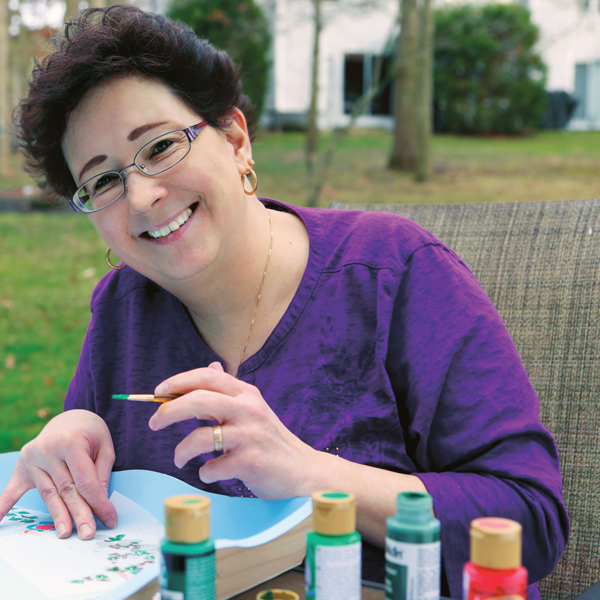Carolyn Sufrin studies female prisoners—women who live out of public view, without visibility or voice.
Sufrin, a Gyn/Ob in the school of medicine, leads the Pregnancy in Prison Statistics project, a collaboration that is collecting data on more than 600 pregnant women in 22 state prison systems and six jails.
She’s working with mentorship from the Johns Hopkins Women’s Health Research Group, which also helped her secure funding from the National Institutes of Health through a program called Building Interdisciplinary Research Careers in Women's Health (BIRCWH).
On May 9, Sufrin discussed her work at the research group’s annual symposium, telling an audience of about 150 men and women that as many as 10 percent of incarcerated women are pregnant, but receive inconsistent care behind bars.
Sufrin's findings underscore the purpose of the research group: to study women’s health in order to improve it.
Until very recently most biomedical research was conducted on and for men, leaving women with less information about their diseases, symptoms and treatments. Only in 2015 did the NIH require that researchers consider sex and gender in biological studies.
“Sex and gender research is a growing area,” says internist Wendy Bennett, founder and chair of the Johns Hopkins Women’s Health Research Group.
Accordingly, the group she helms is growing as well, and will become the Johns Hopkins Center for Women’s Health, Sex and Gender Research. Bennett announced the change at the symposium, saying it will provide a higher profile and more opportunities to attract funding and award seed grants to early-career researchers.
The research group began in 2007 as a journal club to promote and highlight research related to women’s health. From the start, it spanned the schools of medicine, public health and nursing, receiving financial support from all three. It holds seminars, networking events and the annual symposium, plus provides mentorship and funding to investigators. About 30 Johns Hopkins faculty members, including men, are active in the group, Bennett says.
“It’s not all about reproduction,” says Bennett. “One of the changes we’re seeing is the recognition that women’s health involves the whole person at all stages of life. We need to look at pre-adolescents, older women, even sex differences in the fetus.”
Research presented at the symposium explored gender differences and women’s health in all of those stages, also considering such topics as mental health, hypertension and cancer. Presenters included Carmen Alvarez of the school of nursing, Avonne Connor of the school of public health and Angie Jelin of the school of medicine, as well as three BIRCWH scholars from the University of Maryland: Richelle Williams, Tatiana Sanses and Ana Pocivavsek.
Developmental psychologist Kristin Voegtline and cardiologist Rosanne Rouf discussed the work they’ve done as 2016 winners of $25,000 grants from the Foundation for Gender Specific Medicine, helmed by Marianne Legato, an adjunct professor of medicine at Johns Hopkins.
Voegtline is learning that prenatal exposures such as cigarette smoking may influence male fetuses more than females. Rouf is studying mice with Marfan syndrome, a genetic disorder that often leads to heart damage, to better understand how heart disease progresses in human men and women. The foundation will offer two more $25,000 grants later this year, Legato said.
The half-day symposium included a discussion with Sen. Barbara Mikulski, now a Johns Hopkins University professor of public policy and advisor to President Ronald J. Daniels. Mikulski spoke of her 2009 amendment to the Affordable Care Act—providing mammograms and other women’s health protections—and her role in establishing the NIH’s Office of Research on Women’s Health in 1990, with Johns Hopkins-trained cardiologist Bernadine Healy as its first director.
“I cannot tell you the joy I feel that this group exists,” says Mikulski.



